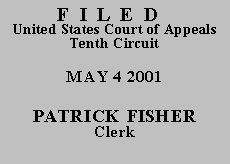

Plaintiff Wayman Bernard Bradshaw, a federal prisoner appearing pro se, appeals the district court's dismissal of his amended complaint as frivolous pursuant to 28 U.S.C. § 1915(e)(2)(B). We conclude the appeal is frivolous and dismiss pursuant to 28 U.S.C. § 1915A(b)(1).
Bradshaw filed his civil rights complaint under Bivens v. Six Unknown Named Agents of Federal Bureau of Narcotics, 403 U.S. 388 (1971), and other federal statutes (including 18 U.S.C. §§ 241, 242, and 1505; 28 U.S.C. §§ 1331, 1332, 1342, 1343, and 1357; and 42 U.S.C. § 1985(3) and 1986).
We review a district court's dismissal of a complaint as frivolous for an abuse of discretion. See Schlicher v. Thomas, 111 F.3d 777, 779 (10th Cir. 1997). The district court carefully examined each of Bradshaw's claims and found that the complaint failed to allege any facts that established a violation of Bradshaw's constitutional rights. Bradshaw seeks remand to the district court to give him an opportunity to amend his claims. He contends:
Since the record here clearly discloses that appellant did in fact allege violations of numerous constitutionally protected rights, it is respectfully submitted that the dismissal of appellant's civil rights complaint as legally frivolous under 28 U.S.C. section 1915(e)(2)(B), particularly where the claims were dismissed without opportunity to amend to cure defects constituted an abuse of discretion.
Br. at 14. Bradshaw fails to provide more than summary assertions that his complaint should have survived. He argues the district court erred in dismissing his complaint as "legally frivolous" because "neither 28 U.S.C. sect. 1915(e)(2)(B), or legislative history suggests that a complaint should be dismissed as being 'Legally Frivolous,' but instead, provides for dismissal of a 'frivolous' or 'malicious' complaint." Br. at 13. The frivolity contemplated by § 1915(e)(2)(B) extends to actions that are legally frivolous. See Hunt v. Downing, 112 F.3d 453 (10th Cir, 1997) (denying application on ground that appeal was "legally frivolous" under 28 U.S.C. § 1915(e)(2)(B)(i)).
The district court did not abuse its discretion in dismissing Bradshaw's complaint as frivolous. The appeal is DISMISSED as frivolous. Bradshaw is reminded that he remains obligated to continue making partial payments of the appellate filing fee pursuant to 28 U.S.C. § 1915(b). The mandate shall issue forthwith.
Entered for the Court
Mary Beck Briscoe
Circuit Judge
*.This order and judgment is not binding precedent, except under the doctrines of law of the case, res judicata, and collateral estoppel. The court generally disfavors the citation of orders and judgments; nevertheless, an order and judgment may be cited under the terms and conditions of 10th Cir. R. 36.3.